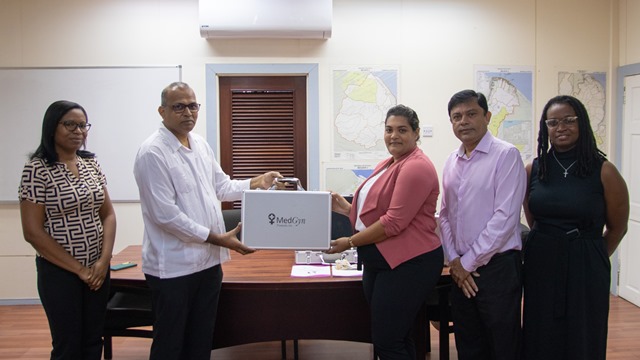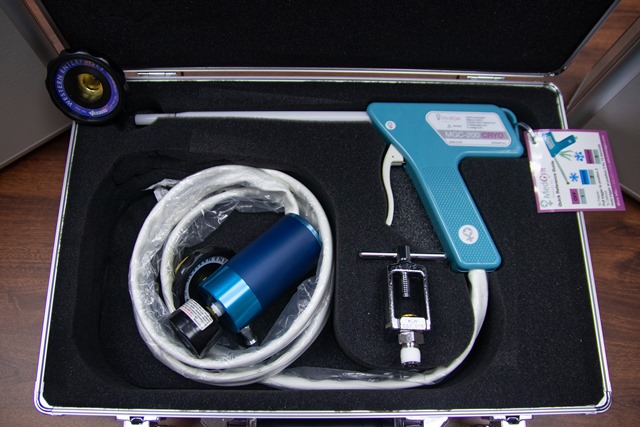
The Health Ministry has acquired 20 cryotherapy machines that will be distributed across the country to help in the treatment and prevention of cervical cancer in women.
The machines were handed over to the Chronic Diseases Unit and will help clear the backlog of patients needing such treatment.
Dr Latchmie Lall, Director of the Ministry’s Non-Communicable Diseases Programme expressed her gratitude for the equipment.
“We are indeed very thankful for this donation of cryotherapy machines that were brought through the IDB project; a total of 20 machines that are going to be used to improve our screening services for cervical cancer, this will come as a great measure for not only screening, but to provide immediate medical treatment in that if we do find a pathological cervix, cryotherapy can be applied immediately and we have one healthy patient going back home to her family,” Dr. Lall said.

Dr Ertensia Hamilton, Director of Primary Healthcare Services said the equipment comes at an opportune time, when the ministry is extending its services for women of reproductive age across the country.
“We recognise that Guyana still has a high incidence of cervical cancer in our women and so we want to be able to have services available to them as we work towards ensuring that each individual across their life course has services to meet their medical needs,” she said.
Health Minister, Dr Frank Anthony noted that there is a holistic approach to dealing with cervical cancer, which is the second most prevalent cancer among women in the country.
Minister Anthony is urging persons to get vaccinated with the HPV vaccine and get screened for the disease.
“We are able to procure these units through the primary health care programme funded by the IDB and it costs approximately $26 million. We have 20 units which will be distributed to all regions of Guyana”, the health minister underscored.
Dr Anthony noted also that, “One of the things that we are trying to do is to have a comprehensive cervical cancer programme. The first level will be to prevent cervical cancer. We want to do that by encouraging people to get the HPV vaccination. We have these vaccines available. We have been rolling them out to ensure that every person eligible for these vaccines gets them.”
Extracted from the Department of Public Information










